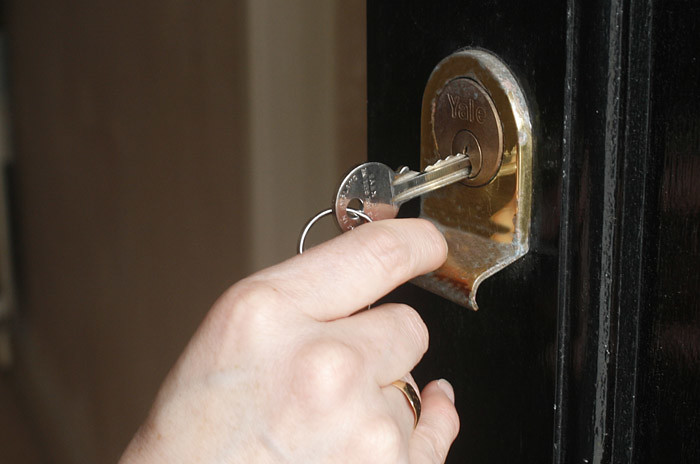
When the real estate market is hot, hot, hot, homebuyers may be so thrilled to make a winning bid on a home they view as “perfect,” they fail to do background checks. Are we talking investigating suspicious people? Not really—but a real estate inspection conducted by a trained professional who knows what to look for can literally save your clients from heartache and expense.
But, you knew that. As an experience realtor, you’ve got your own horror stories about clients who, for any number of reasons, failed to heed your warning about the importance of inspections for real estate evaluation and inspections that reveal imperfections so serious, a sale is destined to spell disaster.
Perhaps you need more ammunition when it comes to presenting your case to your clients so they get the home of their dreams and you get their lifetime loyalty. If you’d like to be seen as a hero by clients and earn their referrals, explain the importance of getting real estate house inspections in ways they can understand. These tips are crafted with you and your clients in mind. Use the ones that fit each circumstance and file away the remainder for the future. The advice around Activerain seems to be clear, when it comes to insections, do them!
Do some role playing
But, you knew that. As an experience realtor, you’ve got your own horror stories about clients who, for any number of reasons, failed to heed your warning about the importance of inspections for real estate evaluation and inspections that reveal imperfections so serious, a sale is destined to spell disaster.
Perhaps you need more ammunition when it comes to presenting your case to your clients so they get the home of their dreams and you get their lifetime loyalty. If you’d like to be seen as a hero by clients and earn their referrals, explain the importance of getting real estate house inspections in ways they can understand. These tips are crafted with you and your clients in mind. Use the ones that fit each circumstance and file away the remainder for the future. The advice around Activerain seems to be clear, when it comes to insections, do them!
Do some role playing
Ask your clients to imagine themselves living in that perfect home, when out of the blue, a pipe bursts as 30 kids arrive for a birthday party, a foundation crack appears out of the blue or a furnace dies on a freezing winter’s night. Explain that some of the most dramatic things that can go wrong are often triggered by minor breaks, splits or damage that is so miniscule, it’s not visible to the untrained eye. Add this to your plea: it’s possible to circumvent budget-busting catastrophes simply by hiring a professional to peek into every nook and cranny for so reasonable a fee, they’d be crazy not to say yes.
Value-added benefit
Value-added benefit
One of the benefits of showing homes to today’s couples has to do with having them both on hand to make sure they are both in agreement. By appealing to today’s working couple, it helps to talk to them in language they understand--and who in the business world doesn’t understand the concept of value-added? When you winnow down the fee of typical, certified home inspectors in your area to understandable terms (“The inspection will cost you the equivalent of a business meeting meal!”), you speak their language and they might even turn to you to interpret the real estate inspection report that results from your advice because you have earned their trust.
Share real stories
Share real stories
Must you turn into a world-class storyteller to convince clients to hire a home inspector skilled at checking out all aspects of a home’s condition? It can't hurt. By sharing the experience(s) of clients you have worked with in the past—or those your colleagues share—you put things in perspective. This is your chance to show buyers that you have their best interests at heart and the concern you show will reap dividends. No need to embellish or resort to fiction: even if you’ve been a realtor for a short while, you have a nightmare or two in your repertoire resulting from a client who refused to have an inspection and lived to regret it. Bring it out when you encounter extreme home inspection-resistant clients.
Explain the territory
Explain the territory
Home buyers are less likely to say no to an inspection when they understand what a certified professional does. Explain that while a roof may look to be in great shape, a skilled home inspector can examine tiles and almost predict how long it will be before leaks seep into a structure. Some home shoppers are impressed when an agent provides them with a checklist of the most common trouble spots home inspectors find. Once they are made aware of the fact that home inspection for real estate purposes by certified inspectors includes checks on heating, cooling, electrical and plumbing systems plus architectural and structural engineering, a professional is seen as more credible, which adds credence to your recommendation.
Don’t skip the legalities
Don’t skip the legalities
If your real estate practice happens to be in a state that mandates full disclosure by law, requiring sellers to fess up about structural or other problems they know about before they put their home on the market doesn't necessarily guarantee transparency. Do homeowners try to circumvent the legal system in these states? Of course. Some are, of course, innocent because the owner has no clue that there are potential disasters in the wings--after all, he's not necessarily trained to spot them. If a client uses the "I'm not having a home inspection because I'm comfortable the legal system will protect me" argument, enlighten him and be doubly convincing when persuading your client to order a home inspection in a state that has no full disclosure laws. They’ll thank you.
Offer reassurances
Offer reassurances
In 2012, the American Society of Home Inspectors released results of a study proving that 88-percent of all consumers queried named home inspection as the single most convincing factor they weighed when making a buying decision. The figure is nearly as high for home flippers and bargain hunters who said that they would be 84-percent more likely to buy a fixer upper, foreclosure or short sale property if they knew an inspector had given a property two thumbs up. Further, the American Home Inspectors Training Institute says that real estate home inspection experts are so influential when it comes to certifying the condition of a property, that report alone can influence the sale price, so if all else fails, you might convince your client to get the home they love inspected as a strategy for price negotiation. Not every buyer will be convinced, but at least you will feel satisfied that you did everything possible to help your clients get the best home deal possible.
The author of this had begun APM Pre Sale Building Inspections for clients and fellow realtors when trying to determine the value of a home. This is in addition to his work as a real estate educator.

Comments(0)